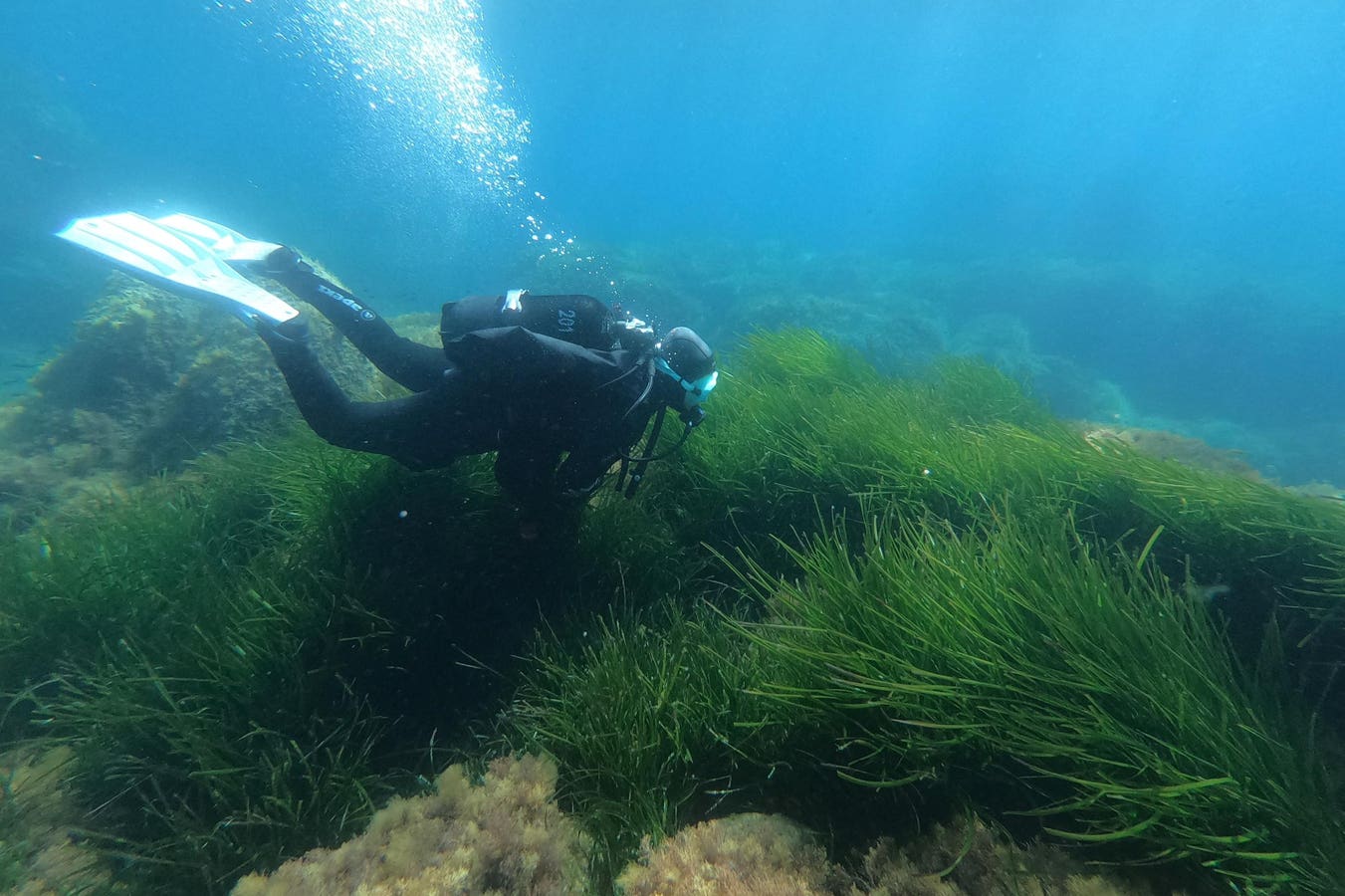A scuba diver dives 6 meters under the Mediterranean Sea around Posidonia sea grass off the coast of … [+]
Deloitte has teamed up with Climate Impact Partners for a program to fund UK seagrass recovery and unlock long-term funding to save and restore vital seagrass meadows.
the program, in collaboration with the Seagrass Project and the National Oceanography Centre, will fund critical research into seagrass meadows across the UK, mapping ecosystems and developing methods to restore them at scale.
It will also seek to address barriers to the flow of finance towards seagrass restoration, including improving scientific knowledge of carbon sequestration, piloting new seagrass propagation techniques and engaging communities in seagrass restoration .
Climate Impact Partners head of product innovation Kirsty Schneeberger said in an interview that seagrass is a “powerhouse” that plays a vital role in protecting marine ecosystems.
Schneeberger said this includes helping to combat ocean acidification, protecting corals against bleaching, and also “really packs a punch in terms of carbon sequestration.”
She told me that one of the goals of the project is to collect and analyze more data about the amount of carbon in the sea and the rate of its sequestration.
Schneeberger said previous studies have shown that sea grass can sequester carbon up to 35 times faster than rainforests.
She added that sea grass also creates a very stable root network, which holds carbon for a very long time.
“By sequestering carbon, keeping it in its root network, seagrass can also prevent other negative impacts we’re seeing from climate change, such as helping to prevent coastal erosion and storm surges,” she explained. .
She said the ultimate goal of the project is also to look at addressing the barriers that prevent projects like this from getting more funding from the private sector.
Schneeberger added that this could be done by using results from the project to develop a seaweed carbon code. Improved data and understanding of seagrass carbon sequestration rates can help build the foundation to quantify carbon benefits.
She said this would support the process of generating carbon credits as part of the voluntary carbon market.
And further unlocking this type of carbon financing is vital to achieving Net Zero global goals, especially for ocean projects, given that Life Under Water is the least funded of all the Nations’ Sustainable Development Goals. United States (SDG) currently.
This program forms a key part of Deloitte’s Beyond Value Chain Mitigation (BVCM) activities.
Deloitte will use skills, influence and targeted investments to catalyze environmental and social impact across the energy transition, circulation, sustainable food systems and nature restoration.
Deloitte’s head of sustainability in the UK and Northern and Southern Europe, Smruti Naik-Jones, said the sea program would help unlock a “powerful tool in the fight against the climate crisis” in a statement.
In coordination with Project Seagrass, a team of volunteers from Deloitte and Climate Impact Partners helped harvest seedlings from a healthy seagrass meadow for the recovery program.
“Seagrass meadows are the powerhouses of coastal seas that provide a nature-based solution to climate change,” said Dr Claire Evans, from the UK’s National Oceanography Center in a statement.
“They have been neglected for decades, which has led to their degradation and loss on a large scale. This program illustrates how we can turn that loss into an opportunity for environmental renewal through large-scale restoration.”
